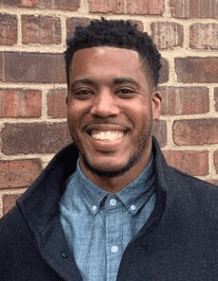 I have never known a month
I have never known a month
that is not February,
by which I mean,
not about the beauty of all things Black.
Yes, we were proud and Black
way back before Gerald Ford
said we could officially have
the shortest month.
Way back when Mom played
double-dutch with her girls in Richard Allen,
be-bopping down the street, singing
ungawa, ungawa, this is Black power!
Way back when Grandmom Bailey
was afraid that Mom’s afro
would have her mistaken
for Angela Davis.
Way back when Pop
used to step out with his crew,
wearing a red, black, and green dashiki
with his picked out fro and some combat boots.
Way back when Grandmom Jackson
would hang out with The Brown Bomber.
We called him Champ, she’d say,
hangin’ around the way on those Harlem streets.
Way back when my Great Grandfather
was sharecropping
just to make a living
under that Virginia sky.
Way back when my ancestors
on the Chism side decided
to name their son Senegal
as a marker of our emancipation.
Way back when we survived
that boat ride across the Atlantic, below deck
humming hymns of praise to the Most High
before our forced conversions.
Way back when we lived with dignity
on the shores of our Motherland,
and we were kings and queens
with far more history than any one month can hold.
Yes, we have been proud and Black
since way back when.
 Drew E. Jackson is a poet who writes at the intersection of justice, peace, and contemplation, having a passion to contribute toward a more just and whole world. His debut poetry collection, God Speaks Through Wombs, is set to be released by InterVarsity Press in September 2021. He holds a B.A. in Political Science from the University of Chicago and an M.A. in Theology from Fuller Theological Seminary. While he’s not traversing the world of poetry, Jackson spends his time pastoring Hope East Village, a church that he planted in 2018. He also serves as the President of Pax, an organization focused on promoting the peace of Jesus in the 21st century. You can download a mini collection of Jackson’s poetry for free.
Drew E. Jackson is a poet who writes at the intersection of justice, peace, and contemplation, having a passion to contribute toward a more just and whole world. His debut poetry collection, God Speaks Through Wombs, is set to be released by InterVarsity Press in September 2021. He holds a B.A. in Political Science from the University of Chicago and an M.A. in Theology from Fuller Theological Seminary. While he’s not traversing the world of poetry, Jackson spends his time pastoring Hope East Village, a church that he planted in 2018. He also serves as the President of Pax, an organization focused on promoting the peace of Jesus in the 21st century. You can download a mini collection of Jackson’s poetry for free.


